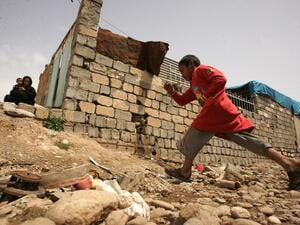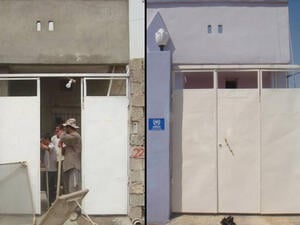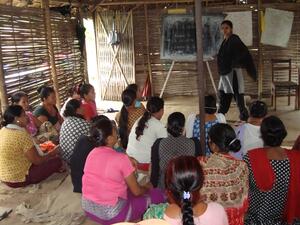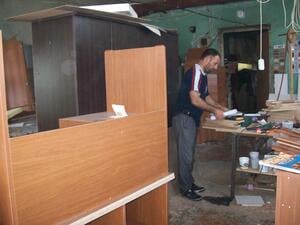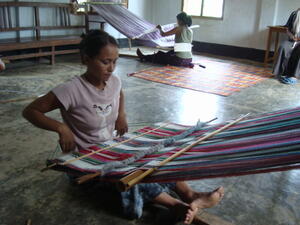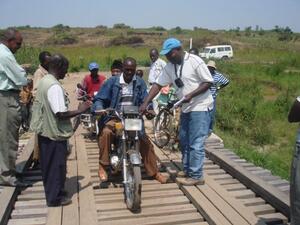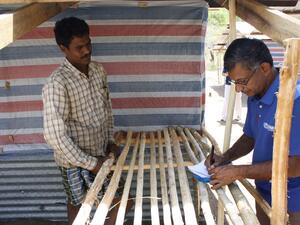Assistance in Pankisi Gorge to focus on development as UNHCR exits
Assistance in Pankisi Gorge to focus on development as UNHCR exits
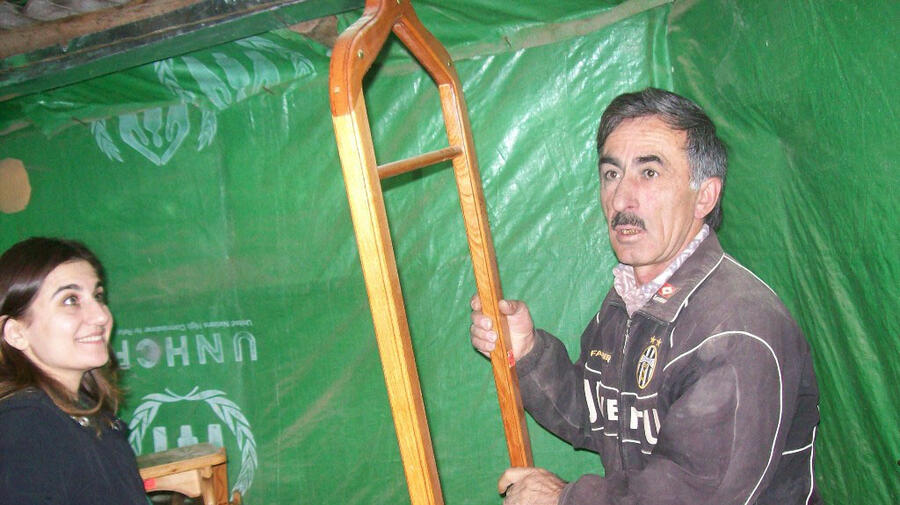
No lack of customers in the carpentry workshop that Shota set up with the help of UNHCR
PANKISI GORGE, Georgia, December 23 (UNHCR) - The picturesque Pankisi Gorge in north-east Georgia has long been known as a haven for Chechen refugees. That should change soon as the remaining Chechens take Georgian citizenship and commit themselves to a permanent life in the sprawling valley.
The UN refugee agency has already drawn up plans to withdraw from the area, which borders Chechnya in the Russian Federation. "We have done our job," said Peter Nicolaus, UNHCR's representative to Georgia. "Over the next year, UNHCR will gradually remove itself from the programme for Chechen refugees and hand over responsibility to the UN Development Programme (UNDP)."
Inita Paulovica, UNDP's acting resident representative in Georgia, welcomed this planned transition to development. "With its assistance to 800 refugees, UNHCR has kick-started the economic development of the valley. UNDP will now work closely with the local authorities and people in the region to design a project that will respond to the main development needs of the area," she explained.
UNHCR has been helping ethnic Chechen and Kist in Georgia ever since 1999, when the country welcomed about 8,000 refugees fleeing from conflict in their corner of the Russian Federation. Most have either returned to Chechnya or moved to Western Europe, but about 800 remain in the Pankisi area, where they live alongside Georgian Kists.
With the help of UNHCR, the government and others, this last group has settled into the social and economic fabric of the valley. Now they are applying for citizenship and in recent weeks around 60 have been naturalized. Many more are expected to apply.
UNHCR's income-generation programmes have been particularly important in helping refugees such as Shota and his family integrate and resume normal lives in the Pankisi Gorge. Shota, who has built a thriving carpentry business, now feels a part of the country that gave him shelter when he was at his lowest.
Elsewhere in the valley many other refugees from Chechnya have created successful businesses after receiving initial advice, training and funding from the UN refugee agency.
Razet runs a sewing workshop making traditional Chechen clothes. Ramzan resumed his love of bee-keeping and now sells his honey, giving away some to poor families, while Adlan has introduced aquaculture, or fish farming, to the valley, rearing carp.
Other businesses run by refugees include a grocery store, an ironmonger's, a beauty parlour and a pharmacy. The produce and services of these enterprises are used by both refugees and host communities. Some of the produce is sold as organic in other parts of Georgia.
At a pharmacy in the Pankisi Gorge town of Duisi, the chemist on duty, Inga, says that before the store opened in May the nearest place to obtain medications was some 20 kilometres away.
"It is necessary to have refugee projects as long as the refugees are more vulnerable than the local population," UNHCR's Nicolaus noted. "But once this gap is closed, it would be counterproductive to continue."
With the refugee agency winding down its presence and programmes in the Pankisi, the UNDP has started sending teams to the area to identify the needs of the local communities.
Meanwhile, Shota has been attending Christmas bazaars selling furniture. He plans to donate the money he earns to a children's home in the Georgian capital, Tbilisi. "The Georgians have supported us for 10 years. I am proud that I am finally in a position to pay back for that kindness."
By Melita H. Sunjic and Suzanne Murray-Jones in the Pankisi Gorge, Georgia


